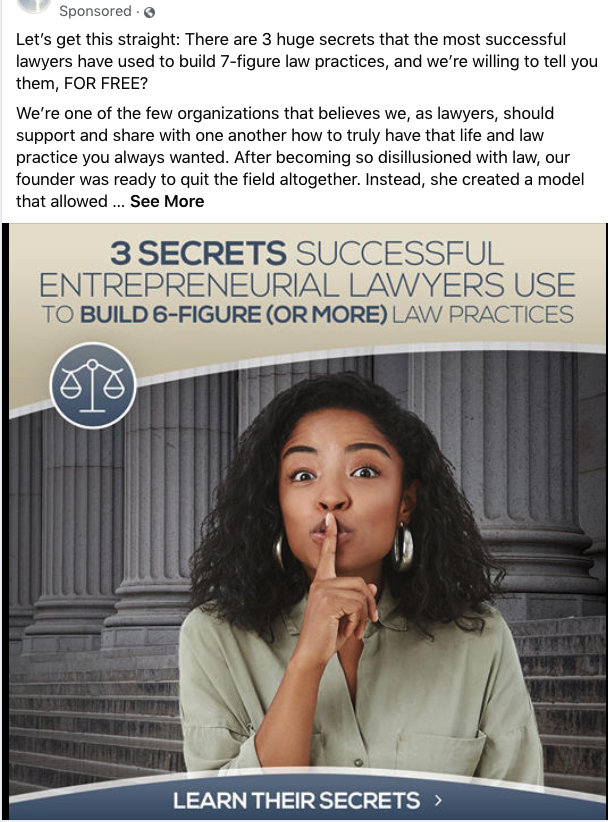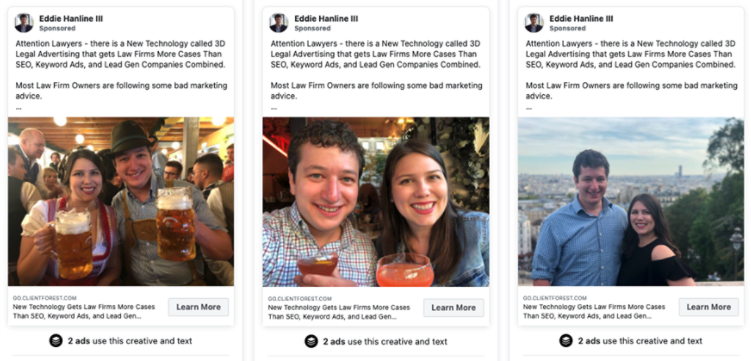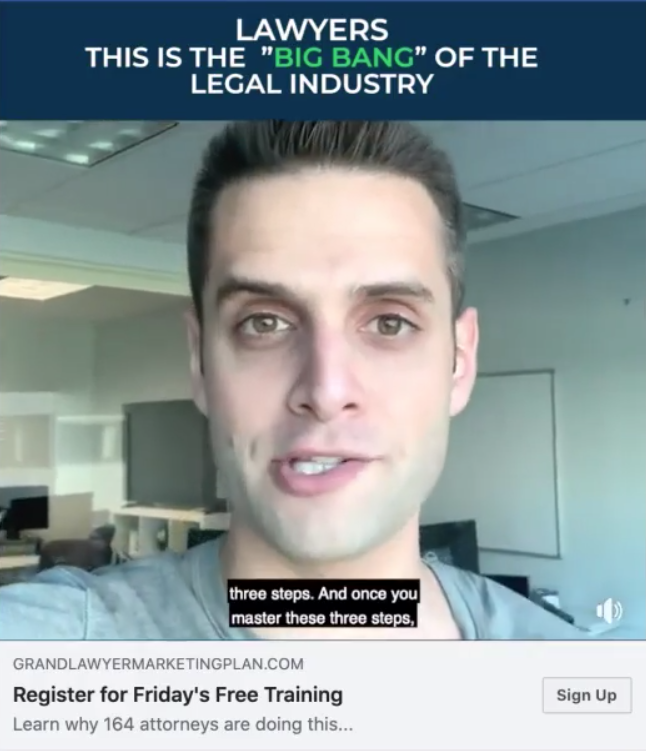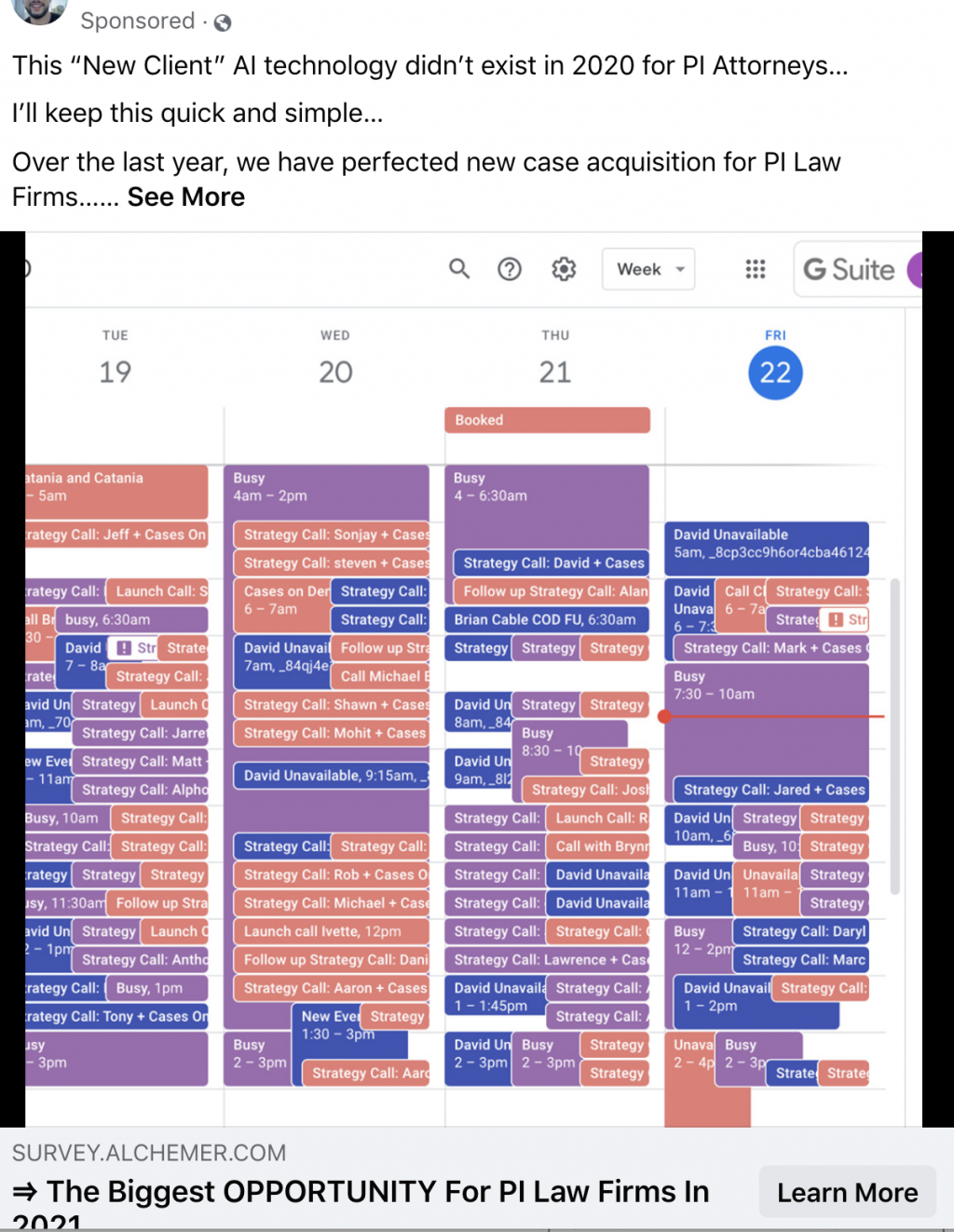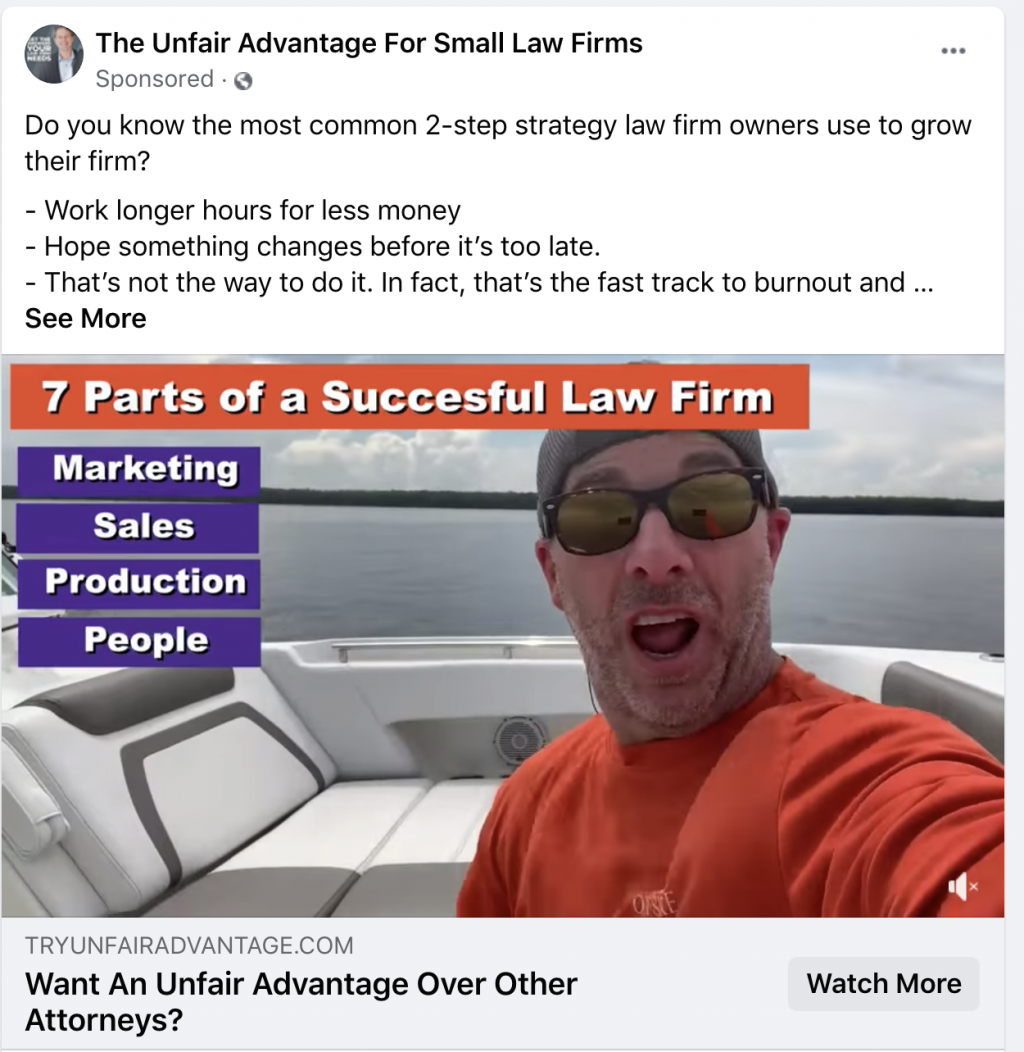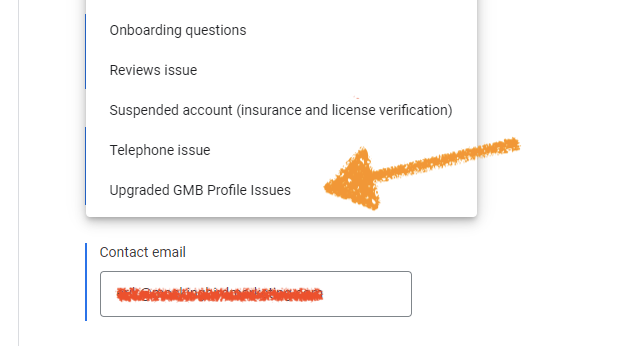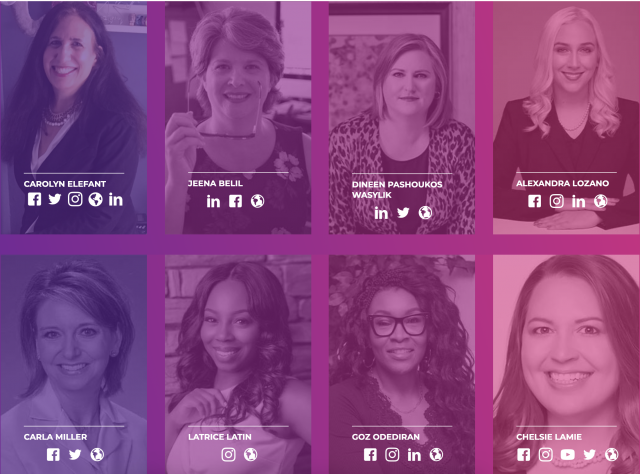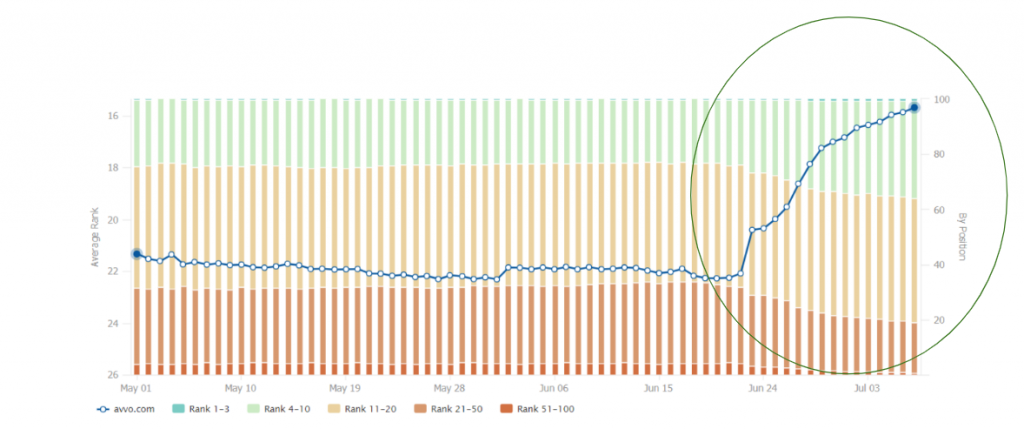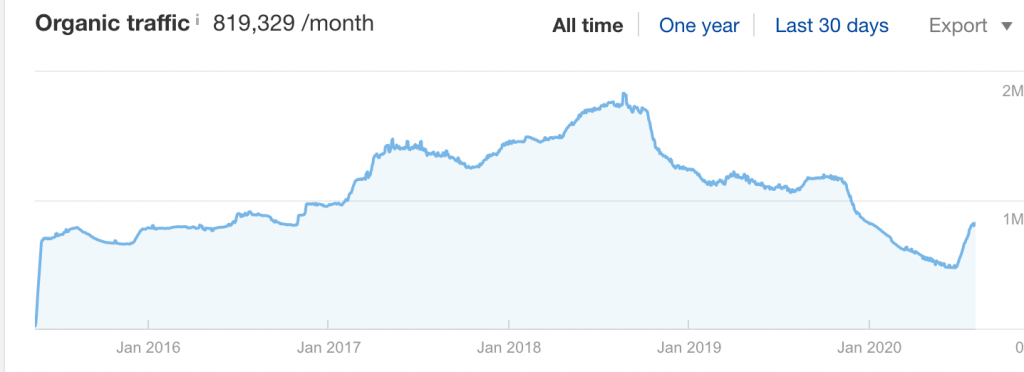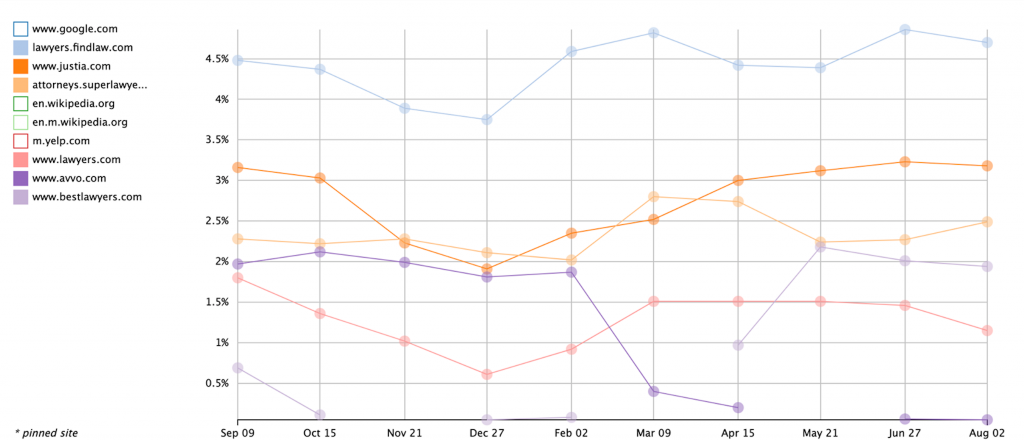82% of podcasts fail.
If you are thinking about starting a podcast to market your law practice, stop. Don’t do it. And stop listening to marketers who don’t know what it takes to not only produce but to start and grow a successful podcast. Let’s face it – if you are reading this post, you also probably have no clue what it takes to really make a podcast successful.
I’m certainly not saying podcasts aren’t an effective marketing mechanism – along with co-host, Gyi Tskakalakis, I podcast bimonthly at Lunch Hour Legal Marketing. It gives me a great opportunity to talk to a dedicated, engaged, regular audience; showcase my deep understanding of digital marketing, and display my rough-around-the-edges, no-bullshit personality in a way that most standard marketing can’t. That’s a huge value. But I also know that Lunch Hour Legal Marketing’s success in podcasting has come at a large investment in time, consistency, money, audio expertise, and leveraged social media equity. And it’s the latter elements of podcasting that are so easily glossed over by naively optimistic legal marketers who jump on the podcast bandwagon because they listen to Pod Save America on their commute. The same experts who jumped on “content is king”, multiple domains, .law TLDs, meerkat, and Clubhouse. The truth is, podcasting success is often pitched by marketers who don’t understand the Field of Dreams content marketing fallacy: build it and they will come. Write the blog and they will come. Shoot the video and they will come. Tik the Tok and they will come. And now… record the podcast and they will come.
If I haven’t dissuaded or insulted you yet, please read on to see some of the pitfalls of podcasting along with some recommendations of what it takes to make a podcast successful…
Podcasting is Very Very Crowded
The fundamental problem with podcasts is there are lots of them. Lots and lots. And the growth in podcasts has far outpaced the growth in ears listening to podcasts. This isn’t a new marketing phenomenon; way back in 2015 a prescient writer at Wired published this post: If Podcasts Are the New Blogs, Enjoy the Golden Age While It Lasts – the key element in this headline being “While It Lasts”. Perhaps the entire perspective on my post is summed up in the Wired subheadline:
“Podcasts hold the promise of a great new democratized medium. But how many blogs do you read now?”
Indeed most people aren’t consuming more and more blog content, but does that hold true for each podcast episode (spoiler alert – it does). While the number of podcast subscribers has steadily increased – with more than 30% of the US population listening to podcasts monthly, there are now over 2 million podcasts with over 48 million episodes. Supply went on a date with Demand and the result is not in your freshman personal injury blog podcast’s favor. ListenNotes (a podcast search engine) reports over 10K podcasts covering law – sure, some of them might be about “murphy’s law” or “laws of attraction” but there’s over 2,500 titled Lawyer. You really sure you want to be #2,501? So while the Field of Dreams theory worked for Kevin Costner, it doesn’t really work for content on the internet (and never has).
The practice of Content Marketing is really missing the point. Content Marketing should really be called Marketing Content – because the emphasis (of your time, money, effort, human capital) should be focused on the marketing side of it, yet almost all lawyers and most marketers focus exclusively on the tangible, fun Content part. (It’s especially convenient for lazy agencies who pass the effort on to their legal clients but fail to push their role – the Marketing part…. “yeah yeah yeah, just keep up with that content creation thing and eventually….”) A very blunt and unscientific rule of thumb for Content Marketing is 20/80 – i.e. you should spend four times as much effort (time and/or money) on marketing the content as you spend on creating it. Now consider recording a half-hour podcast; you spend a bare minimum of 30 minutes on post production and distribution. Are you really up for putting in the additional 4 hours of hard work needed to market it? Probably not.
Podcast Failures – by the Numbers
While there is much coverage about the explosion of podcasts and podcast listenership, very little has been written or analyzed about podcast failure. In an interview with Amplifi Media, Blubrry (a podcasting tool) CEO, Todd Cochrane notes that just 18% of podcasts added new content in the past three months. Deeper analysis shows that more than half of all podcasts are abandoned within a year of launch. Put another way, your marriage is more likely to succeed than your podcast. How’s that for a downer on way too many levels?
Marketing a Podcast
 So in order to avoid becoming a podcasting statistic…. don’t underestimate the effort required in building a regular listenership of subscribers eagerly anticipating your next audio wisdom drop on Apple Podcasts. Driving listeners requires much more than amazing, engaging content (yeah – you heard that from an SEO dude). It requires a turning of the marketing flywheel – essentially a lot of hard work to build to a level of self-sustaining audience growth where your listeners drive more listeners and your download success keeps you at the top of the podcast recommendation engines. Trending podcast anyone? (And yup…. here’s an entirely new algorithm optimization science to learn). Sure, if you have an existing, loyal, engaged social profile you can add podcasts to the panoply of content delivered to your audience. But if you don’t, it’s time to start advertising, promoting, cross podcasting, writing, and rewriting titles and descriptions. Time to learn the vagaries of an entirely new marketing channel – how to optimize each episode across numerous podcasting platforms. Learn new KPI’s, master new software, and invest in new tools Veritronic, Podtrac, Chartable.
So in order to avoid becoming a podcasting statistic…. don’t underestimate the effort required in building a regular listenership of subscribers eagerly anticipating your next audio wisdom drop on Apple Podcasts. Driving listeners requires much more than amazing, engaging content (yeah – you heard that from an SEO dude). It requires a turning of the marketing flywheel – essentially a lot of hard work to build to a level of self-sustaining audience growth where your listeners drive more listeners and your download success keeps you at the top of the podcast recommendation engines. Trending podcast anyone? (And yup…. here’s an entirely new algorithm optimization science to learn). Sure, if you have an existing, loyal, engaged social profile you can add podcasts to the panoply of content delivered to your audience. But if you don’t, it’s time to start advertising, promoting, cross podcasting, writing, and rewriting titles and descriptions. Time to learn the vagaries of an entirely new marketing channel – how to optimize each episode across numerous podcasting platforms. Learn new KPI’s, master new software, and invest in new tools Veritronic, Podtrac, Chartable.
And don’t forget, while you are marketing that podcast…. that is resources and brain space you aren’t using to directly market your firm.
The Train Has Left The Station
Let’s go back to the Wired headline: “Enjoy the Golden Age While It Lasts”. Marketing your podcast today is MUCH more difficult than it was 5 years (or even 5 months) ago. Just like early adopter blogs, which had a unique advantage in building readership, early podcasts have established their audience and this gives them an unfair advantage of commanding the downloads and ears of your potential podcast audience. Read another way: switching loyal listeners from an established podcast to a new one is difficult and with over 2,000 new podcasts being introduced every week, the math is stacked against you. The first-mover advantage is very real in both blogs and podcasting. Remember that flywheel analogy earlier? That flywheel is much much heavier today than it was historically. If you are considering starting a podcast today, that first-mover advantage is so far in the rear-view mirror that you have an uphill battle to climb.
Your Legal Content Is (Probably) Boring
Sorry bloggers and now podcasters – most of your pertinent legal content is not the stuff of podcast success. “10 Things to Do after you receive a traffic ticket in Minneapolis.” Bleh. I’d rather listen to 10th-grade trigonometry class over Zoom from a bored, underpaid, and under-appreciated teacher. This is further complicated by the temporal nature of podcasts colliding with the evergreen nature of the majority of high converting legal content – i.e. what’s the latest and greatest new information about probate? You may work in a practice area that is more newsworthy and coverable – changes in tax law for example (yawn), but by and large those high converting head terms “car accident lawyer San Diego” really aren’t podcast worthy.
So your dull law firm content must be malleable. The challenge becomes reframing your criminal defense law firm podcast into a more interesting, pertinent, timely, consumer-friendly focus – covering the budding marijuana industry in St. Louis, for example. Or your family law practice into a podcast on celebrity divorces. Or move away from law entirely and talk about your community – your PI law firm’s podcast talks about favorite restaurants in Rhode Island – the Providence Pizza Podcast. But ultimately, given the general nature of law firms, you almost certainly need to spin, shift, pivot, reframe, or otherwise do something to dress up your dull law firm content.
Podcasting and SEO
It seems like every latest marketing shiny object includes the promise of “improving your SEO”. The push by marketers and agencies towards podcasts is almost comical… a recent marketing expert extolling the SEO virtues of podcasts for lawyers included this gem:
The potential for high SEO value is one of the added benefits of producing a podcast. Your law firm can advance its marketing goals with a podcast that is rich in relevant keywords and phrases, backlinks, social mentions and shareable content.
A podcast rich in relevant keywords…. rich in backlinks? Backlinks? Can someone please explain the HTML code one uses to insert a link into an audio file? And haven’t we put to bed the “social mentions as an SEO ranking factor” theory? It’s not that great podcasts can’t generate links – guest podcasting can drive links to bio pages, episodes that are featured (and marketed) on your own site may drive links, show notes with links, etc., just don’t forget that the vast majority of podcasts are syndicated and most podcasts earned links will go to those syndication sources instead of your law firm website. For more on Podcasting and real Linkbuilding try: How to Use Podcasts for Linkbuilding, but my meta point remains – the “record a podcast and SEO will magically happen” is a far-fetched Field of Dreams. And yes, I’m still waiting for that link.
Recording Podcasts Well
Actually, recording and post-producing a podcast requires a special talent, background, and experience. Read differently: while amateur video may lend an air of personality and accessibility to a lawyer, a poorly produced podcast is… just frankly hard to listen to. And this gets increasingly complicated when you include more than one person on a podcast; matching audio volumes and different recording software is far from straightforward. Additionally, podcasts invariably require post-production from multiple takes due to verbal fumbles, missed talking points, and if you are like me, removing the occasional spontaneous f-bomb. Our Lunch Hour Legal Marketing podcast has an amazing professional recording and production crew who handles all of this, headaches we don’t have to worry about; but you do.
I’m not suggesting podcasts don’t work… just that most people who are mulling, “should I start a podcast” have very little insight into the time, effort, and money required to make them successful. So… if your agency is pushing you to podcast, ask them what the KPIs are, how they configure GarageBand, how to promote a loyal readership, what tools you need, how to generate appealing content, and exactly what it takes to get an episode trending. I’m not saying it’s impossible, I’m just saying it’s much harder than the marketing experts you’ve been listening to realize.
82% of all podcasts fail – and most of them have more innate consumer-centric appeal than your Atlanta Criminal Defense Law Firm Podcast. And if I still haven’t convinced you… tune in tomorrow for a post from the producer of my podcast, Lunch Hour Legal Marketing he showcases what it takes to generate an amazing podcast. (Don’t know what a plosive is?…. tune in tomorrow to find out.).
